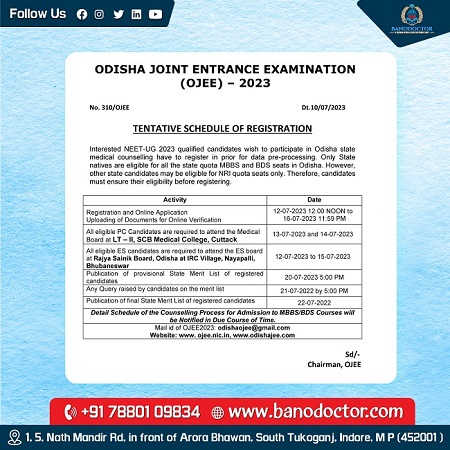Introduction to Unani Medicine
Unani medicine, also known as Yunani medicine, is a traditional system of medicine that originated in ancient Greece and was later developed and refined in the Islamic world. This system is based on the teachings of Hippocrates and other ancient Greek physicians, as well as the wisdom of traditional medicine practices from the Middle East and South Asia.
The term Unani is derived from the Arabic word Unan, which means Greece. Unani medicine is a holistic approach to healing that focuses on maintaining a balance between the body, mind, and spirit. It emphasizes the use of natural remedies, including herbs, minerals, animal products, and certain procedures, to promote health and prevent disease.
Unani medicine follows the concept of the four humors: blood, phlegm, yellow bile, and black bile. According to this concept, an imbalance in the humors leads to illness, and the goal of treatment is to restore the balance. Unani physicians diagnose patients by taking into account their medical history, physical examination, and pulse diagnosis. They then prescribe individualized treatments, which may include herbal formulations, diet and lifestyle modifications, physical therapies, and spiritual practices.
In India, Unani medicine has been practiced for centuries and has been officially recognized as a distinct system of medicine. The discipline has its own regulatory body, the Central Council of Indian Medicine (CCIM), which governs the education and practice of Unani medicine in the country.
Unani medicine is known for its therapeutic efficacy in various conditions such as respiratory disorders, gastrointestinal ailments, skin diseases, musculoskeletal disorders, and mental health issues. The holistic approach of Unani medicine not only targets the symptoms but also addresses the underlying causes of the diseases, aiming to restore overall health and well-being.
Today, Unani medicine is gaining popularity not only in India but also in other parts of the world. It is seen as an alternative and complementary system of medicine that offers a natural and holistic approach to health and healing. The modern scientific research on Unani medicines and practices is also contributing to its credibility and acceptance in the medical community.
In the following sections, we will explore the eligibility criteria, curriculum, and career prospects of the Bachelor of Unani Medicine and Surgery (BUMS) course in India, providing a comprehensive understanding of this field and the opportunities it offers for aspiring healthcare professionals.
History and Origin of Unani Medicine
Unani medicine, also known as Yunani medicine, is a traditional system of medicine that originated in ancient Greece. The term Unani is derived from the Arabic word Unan, which means Greece. This system of medicine combines theories and practices from multiple ancient civilizations, including Greek, Egyptian, Persian, and Indian.
The foundations of Unani medicine can be traced back to the teachings of Hippocrates, the widely regarded Father of Medicine, and his disciple, Galen. The Greek physicians played a pivotal role in the development and dissemination of medical knowledge during the Hellenistic period.
Unani medicine was further enriched and developed by the contributions of Persian scholars such as Abu Bakr Muhammad ibn Zakariya al-Razi (Rhazes) and Abu Ali al-Husayn ibn Abd Allah ibn Sina (Avicenna). These prominent physicians and philosophers made significant advancements in various fields of medicine, including anatomy, pharmacology, and clinical practice.
During the Islamic Golden Age, which spanned from the 8th to the 14th centuries, Unani medicine flourished and spread throughout the Islamic world. Muslim scholars and physicians made remarkable contributions to Unani medicine, translating and documenting the works of ancient Greek, Roman, and Persian medical scholars.
In India, Unani medicine was introduced by the Arab and Persian physicians who accompanied the Islamic conquerors. The system gained popularity and was further developed by renowned scholars like Hakim Ibn Sina, commonly known as Avicenna, and Hakim Ibn Nafis. The Mughal emperors and their royal court also patronized Unani medicine, leading to its further expansion and integration into Indian culture.
Today, Unani medicine continues to be practiced in various parts of the world, including India, Pakistan, Iran, and Arab countries. It is recognized as one of the oldest and most comprehensive systems of medicine, focusing on the balance of the four humors - blood, phlegm, yellow bile, and black bile.
Unani medicine emphasizes the holistic approach to health, considering the physical, mental, and spiritual well-being of an individual. It utilizes various treatment modalities, including herbal medicines, diet and nutrition, cupping therapy (Hijama), massage (Dalk), and surgery (Jarahat).
In summary, Unani medicine has a rich history that spans over centuries and is deeply rooted in the wisdom of ancient Greek, Persian, and Indian scholars. Its principles and practices continue to provide a holistic approach to healthcare, addressing the physical, mental, and spiritual aspects of an individuals well-being.
Philosophy and Principles of Unani Medicine
Unani medicine is a traditional system of medicine that has its roots in ancient Greece. It is based on the principles of the Greek philosopher Hippocrates and later developed by the Persian physician Avicenna. Unani medicine focuses on the concept of balance and harmony in the body, considering all aspects of a persons health - physical, mental, emotional, and spiritual.
The philosophy of Unani medicine is based on the idea that the human body is made up of four elements: earth, air, water, and fire. These elements, in turn, are governed by four essential qualities: cold, hot, wet, and dry. According to Unani medicine, illness occurs when there is an imbalance in these elements and qualities.
The principles of Unani medicine emphasize the importance of maintaining a balance between these elements and qualities to ensure good health. The treatment approach is holistic, focusing on the overall well-being of the individual rather than simply targeting specific symptoms or diseases.
Unani medicine also recognizes the influence of external factors, such as climate, diet, and lifestyle, on a persons health. It emphasizes the importance of a healthy diet, exercise, and a balanced lifestyle to maintain and restore harmony in the body. Unani physicians believe that prevention is better than cure and advocate for a proactive approach to healthcare.
The diagnostic methods used in Unani medicine are based on observation, interview, and physical examination. The physician assesses the patients symptoms, medical history, and lifestyle to determine the underlying cause of the illness. Treatment options in Unani medicine include herbal remedies, dietary recommendations, lifestyle modifications, and physical therapies.
The goal of Unani medicine is not only to treat the symptoms but also to address the root cause of the illness and restore the bodys natural balance. Unani physicians aim to strengthen the bodys natural healing abilities and enhance its resistance to disease.
In conclusion, the philosophy and principles of Unani medicine focus on maintaining a harmonious balance within the body. The emphasis is on holistic treatment approaches, prevention, and restoring the bodys natural healing abilities. Unani medicine offers a unique perspective on healthcare and can be a rewarding career path for individuals interested in traditional medicine.
Understanding the Bachelor of Unani Medicine & Surgery (BUMS) Program
The Bachelor of Unani Medicine & Surgery (BUMS) program is a comprehensive undergraduate course that focuses on the field of Unani medicine. Unani medicine, also known as Yunani medicine, is a traditional system of medicine that originated in Ancient Greece and was further developed in the Middle East and South Asia. BUMS is a popular course in India for those who are interested in pursuing a career in Unani medicine.
Eligibility for BUMS Program
To be eligible for the BUMS program, candidates must meet certain requirements. Generally, the eligibility criteria for BUMS include:
- Educational Qualification: Candidates must have completed their 10+2 education from a recognized board in the science stream (Physics, Chemistry, and Biology) with a minimum of 50% aggregate marks.
- Age Limit: The age limit for BUMS admission varies depending on the state and institution. However, most universities require candidates to be at least 17 years of age at the time of admission.
It is important to note that each state and institution may have specific eligibility criteria, so candidates should refer to the official websites of the universities for detailed information.
Curriculum of BUMS Program
The BUMS program is designed to provide students with a comprehensive understanding of Unani medicine and surgery. The curriculum usually consists of both theoretical and practical components, including:
- Fundamental Principles of Unani Medicine
- Anatomy
- Physiology
- Pharmacology
- Pathology
- Forensic Medicine and Toxicology
- Surgery
- Gynecology and Obstetrics
- Principles of Unani Pharmacy
- Clinical Training, including Diagnostics and Therapeutics
The duration of the BUMS program is generally five and a half years, which includes a one-year compulsory rotatory internship.
Career Prospects after BUMS Program
After completing the BUMS program, graduates have various career opportunities available to them. Some common career paths include:
- Government Jobs: Graduates can work in government hospitals, clinics, and research institutes as Unani Medical Officers, Research Officers, and Teaching Faculty.
- Private Practice: Many graduates choose to open their private clinics or work in private hospitals or healthcare facilities, providing consultation and treatment using Unani medicine techniques.
- Academic and Research Roles: BUMS graduates can pursue further studies and research in various aspects of Unani medicine and can also opt for teaching positions in educational institutions.
- Pharmaceutical Industry: Graduates can work in the pharmaceutical industry, particularly in companies that specialize in herbal medicine production and research.
- Health Tourism: BUMS graduates can also explore opportunities in the rapidly growing field of health tourism, providing medical tourism services to patients seeking alternative and traditional forms of medicine.
It is essential for graduates to register with the respective state or national Unani Medical Boards to practice legally and make use of the available career opportunities.
Overall, the BUMS program equips students with the knowledge and skills necessary to become competent Unani medicine practitioners. With the increasing popularity of alternative medicine, there is a growing demand for qualified professionals in the field, making BUMS a promising career choice for those interested in Unani medicine.
Eligibility and Entrance Exams for BUMS
To pursue the Bachelor of Unani Medicine and Surgery (BUMS) course in India, candidates must meet certain eligibility criteria. These criteria vary from state to state and from university to university. However, there are some common requirements that candidates must fulfill in order to be eligible for BUMS programs.
- Educational Eligibility:Candidates should have completed their higher secondary education (10+2) with a minimum aggregate score of 50% in subjects like Physics, Chemistry, and Biology. Some universities may require specific subject combinations, so it is important for candidates to check the requirements of the respective institution.
- Age Limit:The age limit for BUMS admissions also varies among universities. Generally, candidates should be at least 17 years of age at the time of admission. Some universities may have upper age limits as well.
- Nationality:Candidates must be Indian citizens to be eligible for BUMS programs. However, there may be a provision for NRI and foreign quota seats in some universities.
- Entrance Exams:Admissions to BUMS courses are primarily done through entrance exams. Some of the popular entrance exams for BUMS include:
-
- NEET (National Eligibility cum Entrance Test):NEET is a national-level examination conducted by the National Testing Agency (NTA). To be eligible for BUMS admissions, candidates must qualify in the NEET exam and secure a minimum required score.
- State-level Entrance Exams:Many states conduct their own entrance exams for admission to BUMS courses. Candidates should check the respective states exam schedule and eligibility criteria.
- University-specific entrance exams:Some universities also conduct their own entrance exams for BUMS admissions. Candidates should check the official websites of the respective universities for information regarding these exams.
5. Selection Process:
After the entrance exams, candidates are shortlisted based on their exam scores. Shortlisted candidates may then have to go through further rounds of interviews or counseling sessions, depending on the universitys selection process.
It is important for candidates to stay updated with the official notifications and announcements of the universities they are interested in applying to. They should carefully prepare for the entrance exams by studying the relevant subjects thoroughly and practicing sample papers and previous year's question papers.
By fulfilling the eligibility criteria and performing well in the entrance exams, aspiring students can increase their chances of securing admission to the BUMS program in a reputed institution.
Curriculum and Subjects Covered in BUMS
The curriculum of the Bachelor of Unani Medicine and Surgery (BUMS) course in India is designed to provide students with a comprehensive understanding of Unani medicine. The course duration is typically five and a half years, including a one-year compulsory internship.
The curriculum of BUMS is divided into three phases: Pre-clinical, Para-clinical, and Clinical. Each phase focuses on different aspects of Unani medicine and integrates theoretical knowledge with practical training.
Pre-clinical Phase:
In the pre-clinical phase, students acquire a foundational understanding of basic medical sciences and subjects relevant to Unani medicine. Some of the subjects covered in this phase include:
- Anatomy
- Physiology
- Unani basic sciences
- Urdu language
- Arabic language
This phase lays the groundwork for students to develop a strong understanding of the human body and the principles of Unani medicine.
Para-clinical Phase:
In the para-clinical phase, students delve deeper into the core concepts of Unani medicine. They study the diagnosis and treatment methods used in Unani medicine, as well as gain practical experience through clinical training. The subjects covered in this phase include:
- Pathology
- Pharmacology
- Microbiology
- Toxicology
- Forensic medicine
- Community medicine
This phase also includes subjects related to traditional Unani therapies, such as Ilaj-bil-Yad and Ilaj-bil-Dawa. Students learn about the various diseases and their management according to the principles of Unani medicine.
Clinical Phase:
The clinical phase is the final stage of the BUMS course, where students gain hands-on experience by actively participating in clinical activities. Students are posted in hospitals and primary healthcare centers to observe, diagnose, and treat patients under the supervision of experienced doctors. The subjects covered in this phase include:
- Medicine
- Surgery
- Obstetrics and Gynecology
- Ophthalmology
- Psychiatry
- ENT (Ear, Nose, and Throat)
- Pediatrics
During this phase, students also learn about various therapies practiced in Unani medicine, such as Hijama (cupping therapy), Qai, and Riyazat (physiotherapy). This comprehensive clinical training prepares them to become skilled Unani medical practitioners.
During this phase, students also learn about various therapies practiced in Unani medicine, such as Hijama (cupping therapy), Qai, and Riyazat (physiotherapy). This comprehensive clinical training prepares them to become skilled Unani medical practitioners.
Overall, the curriculum of the BUMS course covers a wide range of subjects that prepare students to become competent Unani medical professionals. It combines theoretical knowledge with practical training, enabling them to provide holistic healthcare services based on the principles of Unani medicine.
Career Opportunities after BUMS
After completing a Bachelor of Unani Medicine and Surgery (BUMS) course in India, there are various career opportunities available for graduates. These opportunities can be in both government and private sectors. Here are some popular career paths that BUMS graduates can consider:
- Clinical Practice: Many BUMS graduates choose to establish their own clinical practice. They can work as traditional Unani medicine practitioners and provide healthcare services to patients. This can be done by setting up a private clinic or joining an established healthcare center.
- Government Jobs: BUMS graduates are eligible for government job opportunities in the healthcare sector. They can apply for positions like medical officer, research officer, lecturer, or consultant in government hospitals or research institutions. These jobs provide stability, regular income, and opportunities for career growth.
- Teaching and Research: BUMS graduates can pursue teaching careers in colleges and universities offering Unani medicine courses. They can become professors, lecturers, or researchers in institutions dedicated to the study and promotion of traditional medicine. This allows them to contribute to the academic field and shape the future of Unani medicine.
- Pharmaceutical Industry: BUMS graduates can also find employment in the pharmaceutical industry. They can work in research and development, quality control, or sales and marketing departments of pharmaceutical companies that manufacture Unani medicines. This sector offers opportunities to contribute to the development and promotion of traditional medicine products.
- Hospital and Healthcare Administration: BUMS graduates with strong leadership and management skills can opt for careers in hospital and healthcare administration. They can work as administrators, managers, or executives in hospitals, clinics, and healthcare organizations. Their knowledge of Unani medicine can be beneficial in integrating traditional medicine systems into modern healthcare facilities.
- Public Health: BUMS graduates can contribute to public health initiatives by working in government or non-governmental organizations. They can participate in research studies, health campaigns, and policy-making processes related to traditional medicine and holistic healthcare. This career path allows them to make a difference at a broader community level.
- Health and Wellness Consultancy: With the growing interest in alternative therapies and holistic wellness, BUMS graduates can establish themselves as health and wellness consultants. They can provide personalized advice, herbal remedies, and lifestyle guidance to individuals seeking natural healing approaches.
It is worth noting that BUMS graduates can also pursue higher education and specialize in specific areas of Unani medicine through postgraduate courses. These advanced degrees can open up further career opportunities in research, academia, and specialized healthcare fields.
In conclusion, BUMS graduates have diverse career prospects in various sectors such as clinical practice, government jobs, teaching, research, pharmaceutical industry, hospital administration, public health, and health consultancy. The choice of career depends on individual interests, skills, and aspirations.
Challenges and Controversies in the field of Unani Medicine
The field of Unani medicine, like any other branch of alternative medicine, faces several challenges and controversies. These challenges can range from the lack of recognition and acceptance by the mainstream medical community to issues related to standardization and quality control.
- Recognition and Acceptance: One of the primary challenges faced by Unani medicine is the lack of recognition and acceptance by the mainstream medical community. Despite its long history and traditional roots, Unani medicine is often seen as unproven or lacking scientific validation by conventional medical practitioners. This can lead to a lack of integration and collaboration between Unani practitioners and other healthcare professionals.
- Standardization and Quality Control: Another major challenge is the standardization and quality control of Unani medicines and therapies. The lack of standardized manufacturing processes and quality control measures can lead to variations in the efficacy and safety of Unani products. Additionally, the absence of regulatory bodies dedicated to monitoring and enforcing quality standards can make it difficult to ensure the authenticity and reliability of Unani medicines.
- Limited Research and Evidence: The availability of scientific research and evidence plays a crucial role in the recognition and acceptance of any medical practice. However, in the case of Unani medicine, there is a scarcity of rigorous clinical studies and evidence supporting its effectiveness. This lack of scientific validation makes it challenging to convince skeptics and establish the credibility of Unani medicine in the broader medical community.
- Ethical Concerns: Like any field of medicine, Unani medicine is not immune to ethical concerns. Some ethical controversies associated with Unani medicine include the inappropriate use of animal and herbal products, unscientific treatment methods, and the exploitation of vulnerable patients. These concerns highlight the need for ethical guidelines and regulations within the field to ensure the well-being and safety of patients.
- Cultural and Religious Bias: Unani medicine has its roots in Islamic traditions and is deeply intertwined with cultural and religious beliefs. This can create challenges in terms of acceptance and integration within multicultural societies, where healthcare practices are expected to be secular and unbiased. Cultural and religious biases can hinder the acceptance and adoption of Unani medicine, particularly in regions where Islam is not the predominant religion.
Despite these challenges and controversies, Unani medicine continues to be practiced and valued by a significant number of people, especially in countries like India, where it has gained legal recognition and support from the government. Efforts are being made to address these challenges through initiatives such as research studies, quality control measures, and collaborations between Unani and modern medicine practitioners. With increased awareness and scientific validation, it is hoped that Unani medicine will continue to evolve and overcome these obstacles to find its rightful place in the broader healthcare system.
Comparative Analysis of Unani Medicine with other Medical Systems
Unani medicine, a traditional system of medicine with roots in ancient Greece, has been practiced for centuries and continues to have relevance in contemporary healthcare. When comparing Unani medicine with other medical systems, such as allopathy, ayurveda, and homeopathy, some similarities and differences emerge.
- Philosophy and Principles: Unani medicine is based on the philosophy of the balance between the bodys humors (categorized as blood, phlegm, yellow bile, and black bile), while other medical systems have their unique principles. Allopathy focuses on the diagnosis and treatment of diseases using drugs and surgery. Ayurveda emphasizes the balance of body elements, known as doshas. Homeopathy employs the principle of like cures like and uses highly diluted substances to stimulate the bodys healing response.
- Diagnostic Approach: Unani medicine primarily uses the identification of signs and symptoms, along with pulse diagnosis, to assess the patients condition. Allopathy, on the other hand, relies on modern diagnostic tools like laboratory tests, imaging techniques, and clinical examinations. Ayurveda employs a comprehensive diagnostic approach that includes examination of the pulse, tongue, eyes, and other factors. Homeopathy emphasizes detailed patient history and observation.
- Treatment Modalities: In Unani medicine, treatment methods include dietary modifications, herbal formulations, cupping (Hijama), detoxification (Irsale-Alaq), and lifestyle changes. Allopathy predominantly utilizes pharmaceutical drugs, surgery, and therapies. Ayurveda employs a range of therapies like Panchakarma, herbal formulations, yoga, and dietary modifications. Homeopathy prescribes highly diluted remedies tailored to each individuals symptoms.
- Approach to Disease: Unani medicine perceives disease as an imbalance of humors and aims to restore equilibrium through diet, herbs, and lifestyle changes. Allopathy focuses on disease diagnosis and treatment based on scientific evidence. Ayurveda considers the imbalance of doshas as the cause of disease and uses personalized treatment approaches. Homeopathy treats the underlying vital force disturbance that leads to disease manifestation.
- Scope and Integration: Allopathy, due to its comprehensive scientific approach, is widely accepted and integrated into mainstream healthcare systems globally. Ayurveda enjoys recognition in India and other parts of the world, while Unani medicine is primarily practiced in India, Pakistan, and some Middle Eastern countries. Homeopathy has a considerable presence in Europe, India, and other parts of the world.
In conclusion, while Unani medicine shares some similarities with other medical systems, such as emphasizing holistic approaches and personalized care, it differs significantly in its principles, diagnostic approach, and treatment modalities. The integration and acceptance of Unani medicine vary across different regions, with allopathy being the most widely recognized and integrated medical system globally. Understanding the unique characteristics of Unani medicine allows for a broader perspective on healthcare options and encourages dialogue among different medical systems for the benefit of patients.
Future Scope and Advancements in Unani Medicine
Unani medicine has a promising future in India, with several advancements and opportunities on the horizon. As traditional systems of medicine gain recognition worldwide, the scope for Unani medicine is also expanding. Here are some key areas where Unani medicine is expected to make advancements:
- Research and development:The field of Unani medicine is witnessing significant developments in research and development. With advancements in technology and increased funding for research, there is a growing focus on studying the efficacy and safety of Unani medicines. This will contribute to the development of evidence-based practices and formulations.
- Integration with modern medicine:Integration of Unani medicine with modern medicine is becoming increasingly important. In recent years, there has been a surge in collaborative research studies exploring the synergistic effects of Unani medicine in treating various diseases. This integration will not only enhance patient care but also provide new avenues for career growth in the field.
- Global acceptance:Unani medicine is gaining recognition globally due to its holistic approach and emphasis on natural remedies. Countries like the United States, Canada, and several European nations are showing interest in adapting and integrating Unani medicine into their healthcare systems. This opens up opportunities for Unani practitioners to work internationally and contribute to global healthcare.
- Natural skincare and wellness:The demand for natural and organic skincare products and wellness therapies is on the rise. Unani medicine offers a wide range of herbal and natural remedies for skincare, hair care, and general wellness. With increased awareness about the harmful effects of synthetic products, more people are turning towards traditional systems like Unani medicine. This offers immense potential for entrepreneurs and practitioners to tap into the market of natural wellness products and services.
- Government initiatives:The Indian government has been actively promoting traditional systems of medicine, including Unani medicine, through various initiatives. This includes setting up dedicated research institutes, providing financial support for research projects, and integrating traditional medicine courses into mainstream education. Such government support is likely to enhance the growth and scope of Unani medicine in the coming years.
- Career prospects:As the scope of Unani medicine expands, so do the career prospects for graduates of Bachelor of Unani Medicine and Surgery (BUMS) course. Graduates can find employment in government hospitals, research institutes, private clinics, wellness centers, pharmaceutical companies, and educational institutions. They can also establish their own clinics or engage in consultancy services.
In conclusion, Unani medicine holds immense promise in the coming years. With advancements in research, integration with modern medicine, global acceptance, demand for natural wellness products, government initiatives, and expanding career prospects, the future of Unani medicine in India looks bright. Students pursuing the BUMS course can look forward to a rewarding and fulfilling career in this field.























![Online Application Form for the National Eligibility-cum-Entrance Test [(NEET (UG)] 2024](https://www.banodoctor.com/public/notifications/1707717098.webp)







